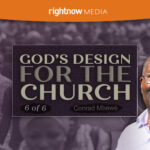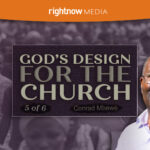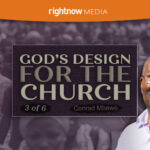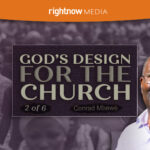Like every other institution or organisation, the church needs leaders. However, as I asked in my previous article: who should lead the church? Sadly, the African church has been plagued by godlike men instead of being pastored by godly ones. What I mean by this is, pastors in Africa are often above the law instead of above reproach. Part of the reason for this is we haven’t consulted God about who should lead the church. For in the Bible, churches were led by elders.
The Office of Elder Is Nothing New
This concept was nothing new because, right across the Old Testament, the people of Israel were led by elders. The very word suggested that they were elderly individuals. Elders were leaders in their families, clans, and tribes, and then they came together to provide leadership to the whole nation.
Elders came together to provide leadership to the whole nation of Israel.
Thus, when Moses and Aaron were planning the great exodus of the people of Israel out of Egypt, they first met with the elders to convince them of this move (Exodus 4:29). Later, seventy elders were chosen to assist Moses in handling judicial matters in the nation (Numbers 11:16, 24). These elders sat at the city gate to handle all kinds of disputes among the people and to pass judgments that resulted in people being either punished or acquitted (Deuteronomy 21:19; 22:15).
This tradition of elders continued all the way into the New Testament, both in Jerusalem and wherever Israelites were dispersed. In the dispersion, the elders ruled in the synagogues, where they formed governing bodies. This is the way in which the religious life of the Jews was well supervised even when they were so far away from the temple in Jerusalem. The elders not only handled judicial matters; they also handled the synagogue properties, the care of the sick, and the gathering of contributions.
Elders Led the Early Church
This concept was carried over into the life of the church from its very beginning (see Acts 11:30; 20:17; 21:18; James 5:14). Even when the apostles were still alive and overseeing the church in Jerusalem, they worked with elders (Acts 15:6, 22).
In the minds of the apostles, the elders of the churches were appointed by God himself.
In the minds of the apostles, the elders of the churches were appointed by God himself. We see this in Paul’s farewell address to the elders in Ephesus: “Pay careful attention to yourselves and to all the flock, in which the Holy Spirit has made you overseers” (Acts 20:28). Paul was not referring to a supernatural prophetic utterance. Rather, he believed that, when God’s people pray and providential happenings match up with biblical qualifications in a person being considered for eldership, it can rightly be said that God himself is behind that person’s appointment.
God (and the Apostles) Gave Elders
The apostles considered themselves to be church elders, rather than being a group of men who were in a class of their own above the elders. The apostle Peter could write, “So I exhort the elders among you, as a fellow elder and a witness of the sufferings of Christ, as well as a partaker in the glory that is going to be revealed: shepherd the flock of God that is among you, exercising oversight” (1 Peter 5:1–2, emphasis mine).
The work of planting churches wasn’t finished until suitably qualified elders were installed.
Elders were the primary leaders of the church. When churches were being established, it was the responsibility of the pioneering missionaries to ensure that men in that church were mentored until they were mature enough to be appointed as elders. The work of planting churches was not finished until suitably qualified elders were installed. We read that Paul and Barnabas did so among the churches they were planting in Galatia: “And when they had appointed elders for them in every church, with prayer and fasting they committed them to the Lord in whom they had believed” (Acts 14:23). That is when they considered their work to be finished.
This article was adapted from God’s Design for the Church: A Guide for African Pastors and Ministry Leaders, by Conrad Mbewe, Copyright © 2020, pp. 100-101. It is used with the permission of Crossway, a publishing ministry of Good News Publishers, based in Wheaton, IL. Purchase a copy at Christian Book Discounters. You can read a review of it here, as well two series of articles adapted from the book dealing with: (1) The African Church and Money; and (2) Church Discipline.














